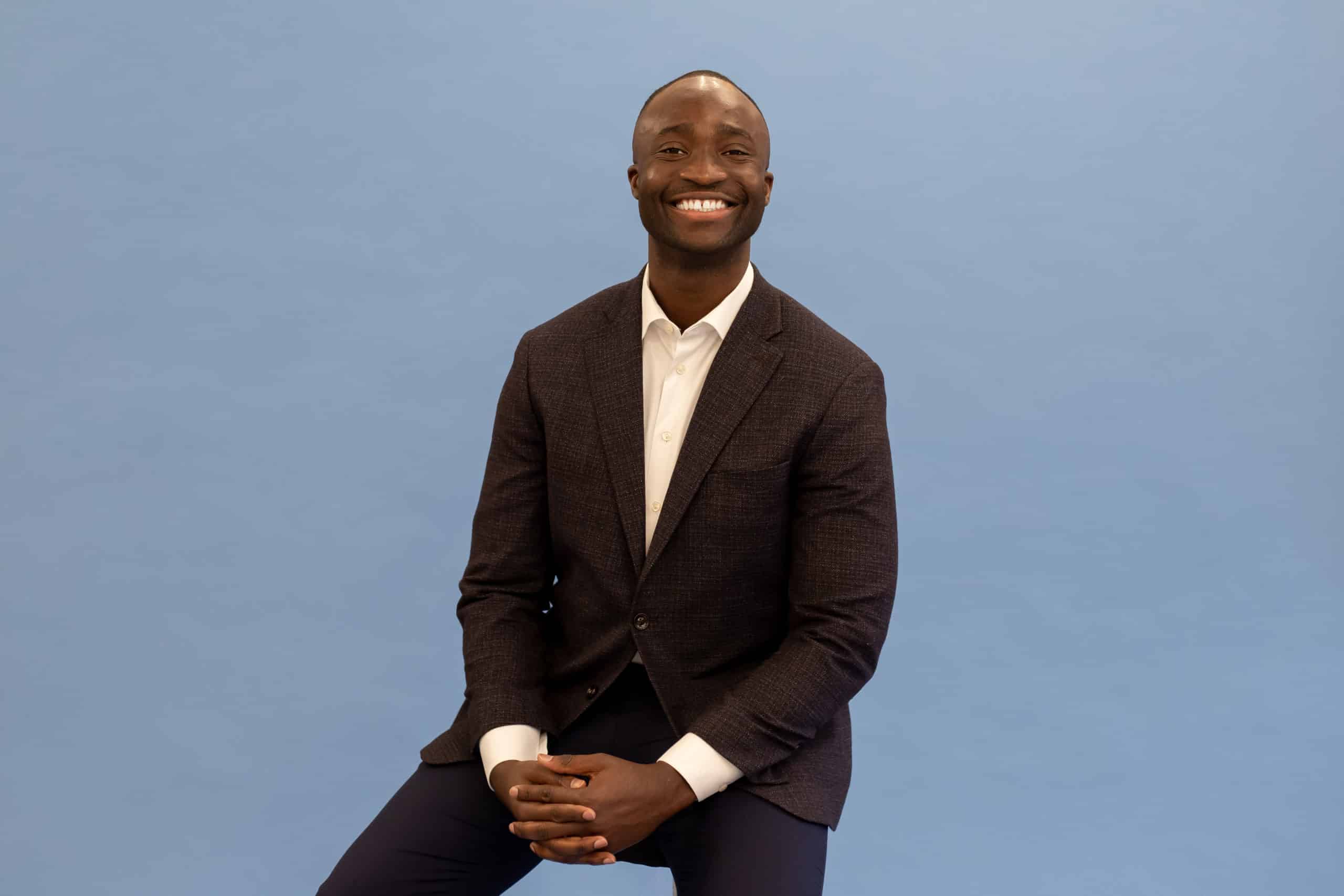Wemimo Abbey
Co-Founder, Esusu
“We like to call ourselves [social] justice capitalists.”
Wemimo Abbey, co-founder of Esusu, a company which reports rent payments to major credit bureaus helping renters establish their credit scores and owners maximize returns, says the company was born out of personal struggles.
Abbey grew up in the slums of Lagos, Nigeria, and was raised by his mother, along with two sisters, after his father passed away when he was just two years old. Despite having less than a secondary school education, his mother ensured he went to one of the best high schools they could find. This took the family from the lush tropical climate of Lagos to the freezing climes of Minnesota in the US.
“During that transition, something important happened. We didn’t have a credit score. We walked into one of the largest financial institutions to borrow money [and] were turned away. We had to go borrow money from a predatory lender at over 400% interest rate.”
His mother pawned his father’s ring and borrowed money from church members to make payments. This led Abbey and his co-founder, Samir Goel, to start a company premised on the idea that no matter where you come from or the color of your skin, your financial identity shouldn’t ring fence your path in life.
Loading...
Aside from establishing credit scores, Esusu gives zero-interest rent relief paid directly to landlords when people cannot pay, so people are not evicted.
Abbey says they’re not solving homelessness backwards, adding that they operate on the social aspect of ESG – to give data-driven improved credit scores.
After university, both Abbey and Goel quit their corporate jobs, combining savings and $100,000 in credit card debt to fund the startup. After being rejected by almost 326 potential investors at the time, Abbey says it’s a scrappy story of realizing potential. Today, Esusu covers three million rental units in 50 US states, across real estate asset classes including affordable public housing, luxury student housing, military, and everything in between. They’ve grown from a staff of 20 to 200 in under two years. Not to mention, they’re making an impact despite their youth; Goel is 28, Abbey is 30.
“At Esusu we like to call ourselves [social] justice capitalists. Doing good and doing well isn’t mutually exclusive,” Goel says. He argues they are in the best position to create solutions for the demographic that not only looks like them but also are going through similar challenges.
They started with a savings model, digitizing age-old collective community savings techniques. However, they soon learned people already knew how to save, so they pivoted their model after realizing most consumers didn’t have access to affordable financing in an emergency.
“It’s quite obvious that we don’t look like everyone else in Silicon Valley. But I think beyond that, one of the things we realized is a lot of the people we were talking to lacked proximity to the issues that we were trying to solve,” says Goel. He says that, from their perspective, they’re serving the majority, as there are more people who are credit invisible like immigrants, minorities, and low-income households. Within these brackets, there are more people living paycheck-to-paycheck than those who are not.
Abbey reflects that a mobile phone is a powerful tool for digitizing African economies and unlocking opportunities. “We’re very excited that on the African continent with the emergence of new technologies, borrowing money doesn’t have to be a derivative of your father’s last name anymore.” He adds that it has become more about credit risk and financial profiles. These innovations, he notes, means the world is seeing Africans create solutions for Africans.
“So this is the movement of the African continent from this aid-based, poverty-ridden continent to a new era of innovation, technology, championed by its youth population. We think the movement is just getting started. So, it’s common business sense [for] the folks in Silicon Valley making these investments on the continent. My opinion – the best is still yet to come.”
Goel says Esusu does not look like other unicorns in the US, as their capitalization table is 75% black and brown women, the management team is 93% people of color, first- or second-generation immigrants and women. The company as a whole is composed of people of color.
Abbey says when they were declared a unicorn, they were immensely grateful. The company tells the story that it’s possible to invest in a minority-owned business and outperform other companies. Overall, Esusu tells a story of the impact and effect capital can have in the lives of many.
Abbey observes that a lot of African countries are young with the oldest around 60 years old, unlike the US which is over 300 years old. “If you look at the rate of growth, it’s actually accelerating compared to where places like the United States were when they were at this age,” he says.
It’s a renaissance that technology is going to revolutionize the way the continent thinks, and the way other places think about Africa. The narrative is changing from tourism and wildlife to which high-growth startups to invest in.
“We need to do more of the showing and stop telling people. Let the record speak for itself! Relegate the rhetoric, consider there’s something genius and there’s something special about the folks that come from the continent. And we’re just getting started. Because we’re young, we’re vibrant, we have ideas that can really change the world,” Abbey concludes.
Loading...
